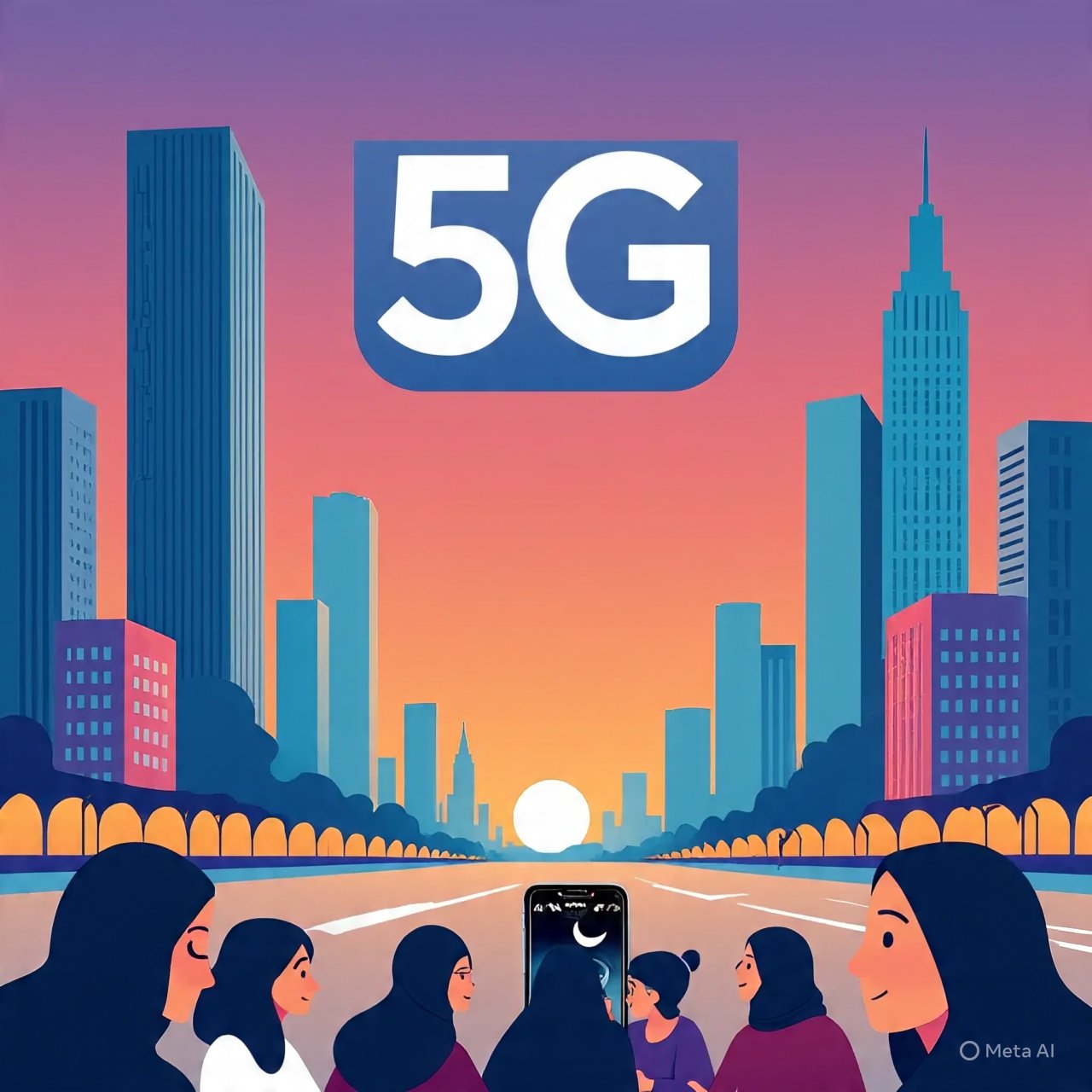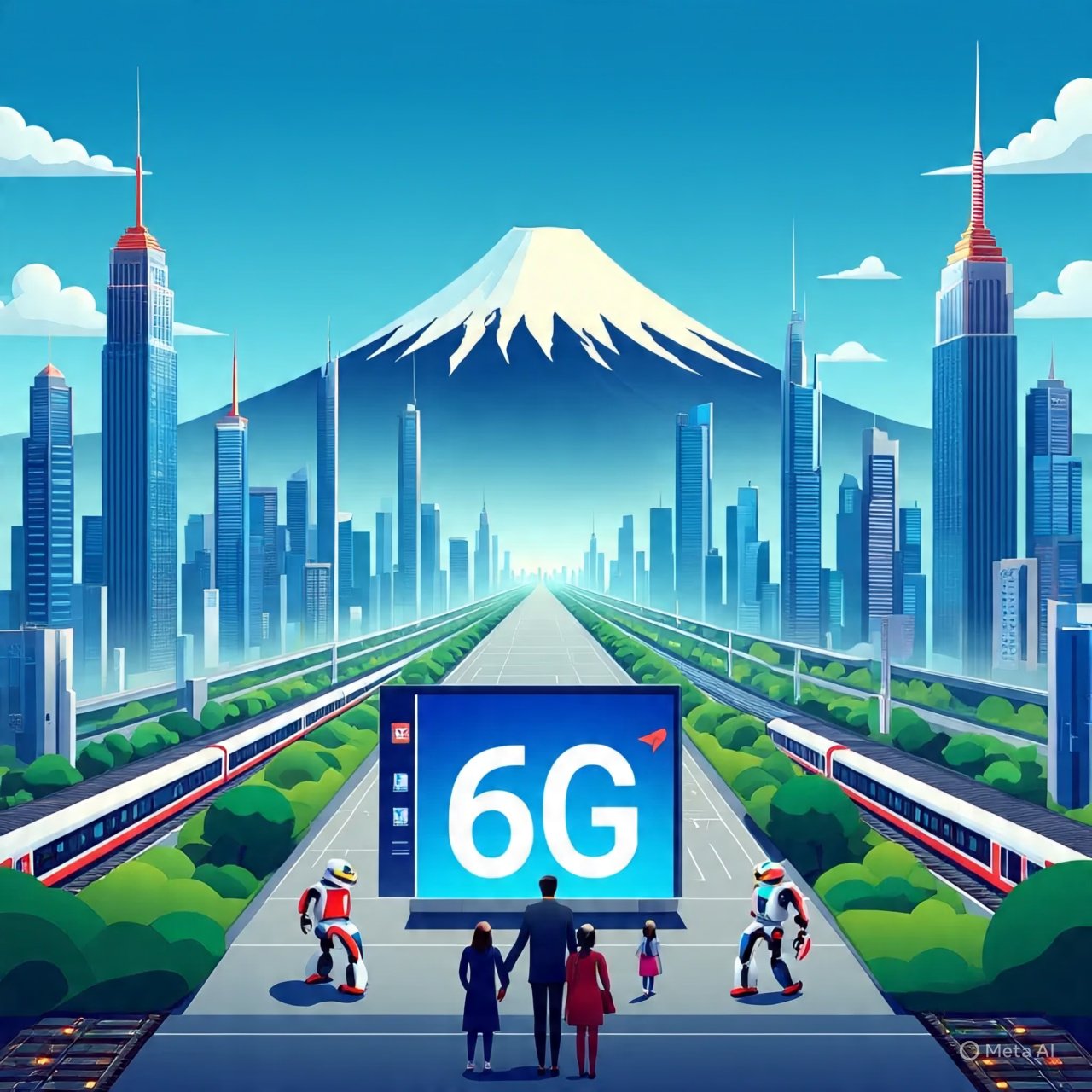5G Internet Dawn in Pakistan – Beginning of a Technological Revolution
Introduction: 5G Internet Dawn in Pakistan – Beginning of a Technological Revolution
Pakistan stands at a new historical turning point in the field of technology, where the launch of fifth-generation (5G) wireless network will not only bring revolutionary changes in data speed and quality but will also open new doors for the country’s economic, educational, health, and industrial development. This is not just a new generation of internet but the foundation of Pakistan’s digital future, which will play an important role in connecting our country with the modern global economy. The extremely low latency, extraordinary speed, and large capacity of 5G technology can transform the vision of smart cities, automated industries, and Internet of Things (IoT) into reality in Pakistan. However, this journey also faces challenges such as infrastructure development, investment opportunities, and consumer protection, which will be discussed in detail in this comprehensive article.
Introduction to 5G Technology and Its Importance in Pakistan’s Context
5G technology is the fifth generation of wireless communications that offers 100 times faster data transmission than current 4G networks, extremely low latency of 1 millisecond, and the capability to connect over one million devices per square kilometer. The importance of 5G for Pakistan is doubly significant because it will not only promote the digital economy but will also lead to the establishment of new industries, increase in employment opportunities, and improvement in quality of life. Especially in improving access to health and education facilities in rural areas, 5G holds key importance. Through the implementation of 5G in Pakistan, along with providing consumers with the fastest internet services, industrial sector automation, use of modern technology in agriculture, and facilities like telemedicine in the health sector will be promoted. This technology will play an important role in making Pakistan competitive at regional and global levels.
Review of Current Digital Infrastructure in Pakistan and Need for 5G
A comprehensive review of current digital infrastructure is extremely necessary for the successful implementation of 5G in Pakistan. Currently, 4G networks are active in the country whose coverage is reasonable in urban areas but there is still significant deficiency in rural areas. According to Pakistan Telecommunication Authority (PTA), the number of mobile broadband users in the country has exceeded 100 million, however, only 45% of these users are using 4G services. Significant progress has been made in fiber optic network installation in recent years but still 60% of the country’s population does not have access to fiber broadband connections. Significant improvement will be needed in current infrastructure for successful 5G implementation, especially focusing on fiber network expansion, tower upgrades, and construction of data centers.
5G Network Implementation Requirements and Infrastructure Preparation
Effective implementation of 5G network will require large-scale changes in current telecom infrastructure. This includes large-scale installation of small cells, comprehensive expansion of fiber optic network, and use of advanced technologies like Network Functions Virtualization (NFV) and Software Defined Networking (SDN). Regarding the infrastructure required for 5G in Pakistan, it is estimated that approximately 50,000 new towers and 500,000 small cells will need to be installed nationwide, especially in urban areas where user density is high. Due to the high frequency (3.5 GHz to 26 GHz) of 5G signals, the distance between towers will have to be reduced to 200-300 meters, which may require installing small cells after every 2-3 buildings in urban areas.
Economic Impacts of 5G and Opportunities for Pakistan
The economic impacts of 5G technology implementation in Pakistan will prove to be far-reaching and transformative. According to joint estimates by World Bank and World Economic Forum, full implementation of 5G is expected to add $40 to 50 billion to Pakistan’s economy by 2035. This technology will help in establishing new industries, improving performance of existing industries, and creating new employment opportunities. Especially in telecom sector, software development, data analytics, and cloud computing fields, development prospects are bright. For small and medium enterprises (SMEs), 5G will provide cloud computing, IoT devices, and real-time data analysis facilities, which can increase their production capacity by 30-40%.
Revolutionary Changes in Healthcare Sector Through 5G
5G technology can bring revolutionary changes in Pakistan’s healthcare sector that will completely transform the quality of healthcare in the country. Due to extremely low latency (1ms) and high speed (10 Gbps), advanced facilities like telemedicine, remote surgery, and real-time patient monitoring will become possible. People living in rural areas will get direct access to specialist doctors’ services, which will significantly reduce the urban-rural divide in health facilities. Through 5G, wireless healthcare devices, smart hospitals, and artificial intelligence-based diagnostic systems can be introduced, which can bring 50% improvement in healthcare quality.
Changes in Education Sector Through 5G
5G technology can prove to be an important turning point in organizing Pakistan’s education system on modern lines. Educational experience can be completely transformed through virtual and augmented reality, while students in remote areas will get better access to online educational resources. Through 5G, interactive classrooms, remote labs, and real-time online courses will become possible, which will help improve educational quality and increase access to knowledge. Especially for rural area schools, 5G internet facility can increase educational quality by up to 40%.
Modernization in Agriculture Sector with 5G Assistance
Pakistan’s agricultural sector can take full advantage of 5G technology. Field monitoring through IoT sensors, crop spraying through drones, and production prediction systems based on artificial intelligence can increase agricultural production by 25-30%. Through 5G, real-time meteorological data, soil moisture, and crop health information can be obtained, which will help farmers in better decision making. Through smart irrigation systems, water wastage can be reduced by up to 60%.
Role of 5G in Industrial Development and Automation
5G technology will open new paths for industrial development and automation in Pakistan. Facilities like smart factories, robotic processing, and real-time supply chain management can cause 35% increase in industrial production and 20% reduction in costs. Especially textile, automobile, and manufacturing industries will directly benefit from 5G. Through industrial IoT, machine performance monitoring and prediction can significantly increase production capacity.
Role of 5G in Establishing Smart Cities
5G technology can make the establishment of smart cities possible in Pakistan. IoT devices, smart traffic systems, intelligent street lights, and real-time monitoring systems can improve the quality of urban life. In major cities like Karachi, Lahore, and Islamabad, 5G implementation can bring 40% reduction in traffic jams, 30% increase in energy saving, and 50% improvement in urban facilities. Smart parking systems, intelligent waste management, and smart grids can bring revolutionary changes in urban administration performance.
Spectrum Auction and Regulatory Framework
Spectrum auction is an important step for 5G implementation in Pakistan. Pakistan Telecommunication Authority (PTA) and Frequency Allocation Board (FAB) have started preparations for 5G spectrum auction. 3.5 GHz band is initially being allocated for 5G, while 26 GHz and 28 GHz bands are also under consideration. Ensuring transparency and competition in spectrum auction process is essential so that consumers can get the best services. Government of Pakistan has set 2024-25 as target for 5G spectrum auction.
Cybersecurity and Data Privacy Challenges
With 5G network implementation, new challenges of cybersecurity and data privacy will also emerge. Increased network complexity and use of large number of IoT devices can increase the risk of cyber attacks. For secure 5G implementation in Pakistan, strong cybersecurity framework, data privacy laws, and consumer protection measures will be needed. Only coordinated efforts between National Information Technology Board (NITB) and Pakistan Cybersecurity Authority can overcome these challenges.
Pakistan’s Position in Regional and Global Competition
Pakistan is somewhat behind in 5G technology implementation compared to other countries in the region. 5G services are already active in countries like India, China, and United Arab Emirates. However, there is opportunity for rapid development in Pakistan, especially if coordinated efforts are made between private sector and government institutions. Pakistan has the advantage of young population that is more inclined to adopt new technologies. Comprehensive strategy is needed to improve Pakistan’s position in global 5G index.
Investment Opportunities and Economic Benefits
5G implementation will open new doors for investment in Pakistan. International companies are showing interest in Pakistan’s telecom market, while local investors are also eager to invest in new technology. Investment opportunities will be created in 5G-related industries like cloud computing, IoT devices, and software development. It is estimated that 5G implementation can bring over $5 billion in direct investment to Pakistan.
International Partnerships and Technology Transfer
Pakistan has established partnerships with countries like China, Saudi Arabia, and Qatar for 5G technology implementation. Chinese companies like Huawei and ZTE are helping in building 5G infrastructure in Pakistan. These partnerships will not only help in technology transfer but will also provide opportunities for training local workforce. Pakistan is working on 5G infrastructure development projects under China Pakistan Economic Corridor (CPEC).
5G Impact and Benefits for General Consumers
5G implementation will bring significant improvement in general consumers’ internet experience. Video streaming, online gaming, and virtual reality applications will perform better. However, in initial phase, high price of 5G devices and services could be a challenge for consumers. Government and telecom operators should introduce special packages to provide facilities to consumers.
Conclusion: New Chapter of Pakistan’s Digital Future
5G technology implementation in Pakistan will open a new chapter for the country’s digital future. Although there are infrastructure, investment, and regulatory challenges in this path, this dream can be realized through government commitment and private sector participation. 5G will not only align Pakistan with modern technology but will also cause economic development, employment opportunities, and improvement in quality of life. Pakistan’s young population can adopt this change and put the country on new paths of development.


